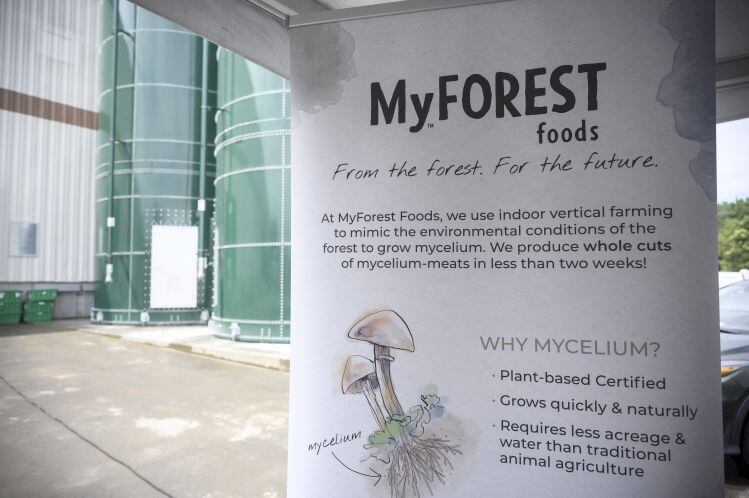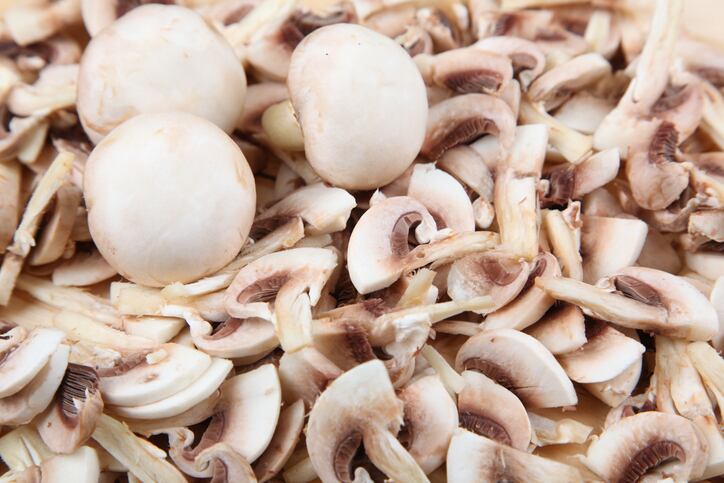“Mushrooms have been used forever in traditional Chinese medicine and in other cultures,” said Nirmal Nair, founder and CEO, Sempera Organics. “But we’re seeing a trend here towards food as medicine and people are discovering that mushrooms have a lot to offer.”
If you’re looking for some more specific recent drivers, he said, “One was of course COVID. People were stuck at home and started searching on Google for immune health ingredients. You can look at Google Trends and see that sudden spike.
“There was also a study out of Johns Hopkins [published in November 2020 showing positive effects of Psilocybin - a psychedelic substance in ‘magic’ mushroom - on patients with severe depression] that shone a spotlight on mushrooms, and people started asking, what else can mushrooms do?”
Large CPG companies as well as startups are starting to explore the medicinal mushroom trend
While more human clinical research is needed, there is emerging evidence on the health benefits of beta 1,3/1,6 glucans - polysaccharides found in medicinal mushrooms that have been linked to a range of benefits from immune health to cardiovascular health, antimicrobial, anti-inflammatory, and prebiotic effects, and blood glucose control – and large companies as well as more agile startups are now starting to pay attention, claimed SVP of business development at Orgenetics, Saumil Maheshvari.
In some cases, he said, CPG brands or supplement companies looking to tap into the medicinal mushroom trend are asking for specific varieties such as Lion’s Mane or Turkey Tail, but more often they are searching for ingredients that can address health issue such as stress management, focus and concentration, or immune health, and mushrooms keep coming up.
“Almost all mushrooms have some form of immunity advantage,” claimed Nair at Sempera. “But right now I’d say Lion's Mane is capturing everybody's imagination, because it has been shown to be effective with nerve growth factor synthesis, while there’s evidence of Reishi helping with stress, and then Cordyceps for athletes.”
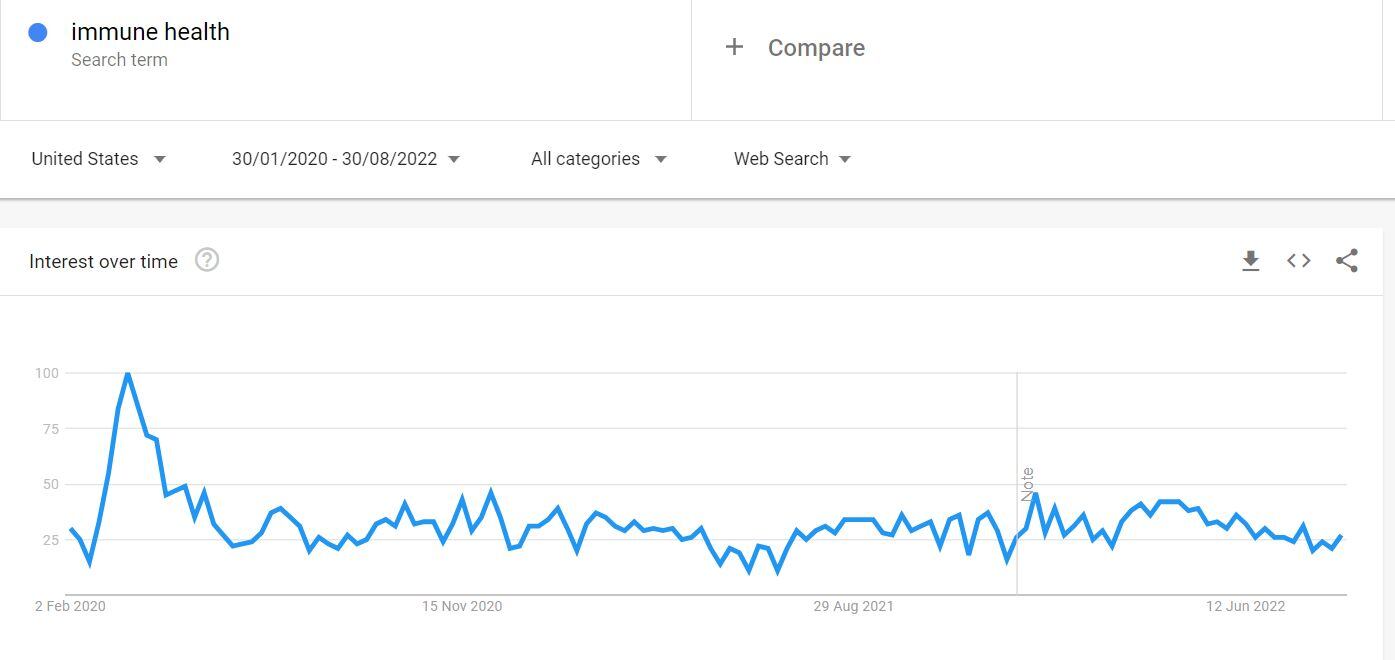
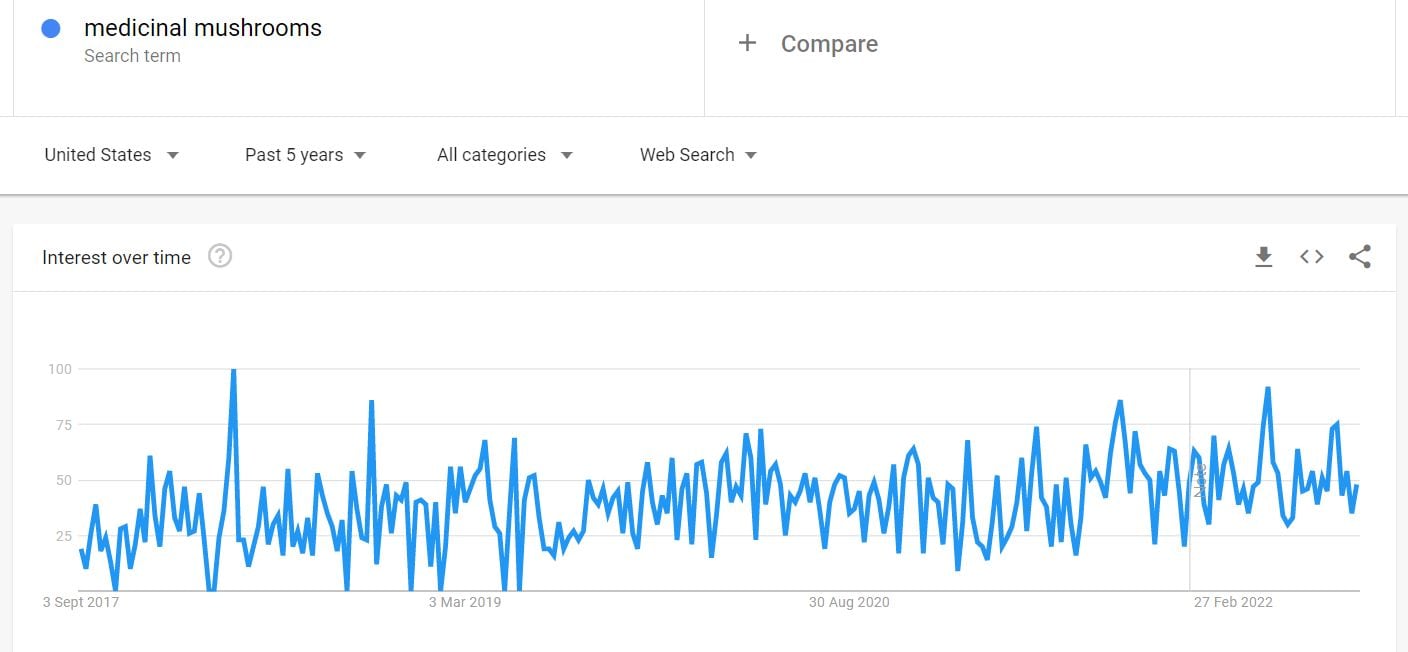
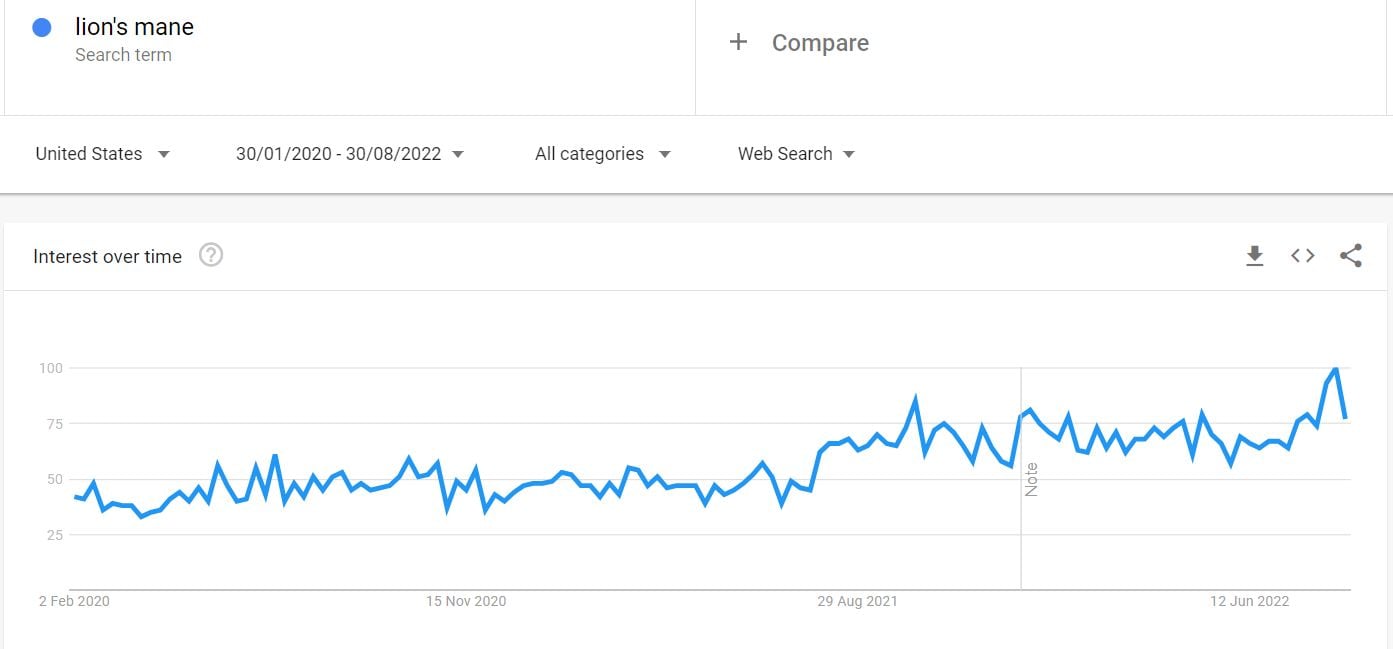
Ergothioneine: The 'longevity vitamin?'
Data from the American Botanical Council’s Herb Market report (HerbalGram #131) showed that sales growth of mushroom supplements in the natural channel ranged from 23-40% depending on the mushroom.
Much of the initial demand was driven by dietary supplements, but that is now changing with food and beverage companies getting in on the action, with growing interest in ergothioneine, a sulfur containing amino acid that functions as an antioxidant. Mushrooms are a primary source of ergothioneine in nature.
A 2010 paper by Solomon Snyder, MD, Professor of Neuroscience at Johns Hopkins University School of Medicine, describes the amino acid as a possible vitamin: “Evidence that [ergothioneine] is a physiologic antioxidant raises the question of its ‘status’ in biology. Despite its high concentration and ubiquitous presence, all mammalian ET derives from dietary sources.
"The existence of [ergothioneine transporter] establishes [ergothioneine] as an important normal body constituent. In this sense, [ergothioneine] probably fits the definition of a vitamin.”
Full spectrum products
When it comes to procurement, however, some homework is required, said Nair, who is producing a wide range of certified organic whole mushroom powders and blends (with extracts to come). These are standardized to beta-glucan content and grown using solid state fermentation with sorghum as a substrate, “close to 100%” of which is digested and converted by the mushrooms in the firm’s zero-waste process, he claimed.
“We’re not using open trays; we grow them in special bioreactors that allow for just air transfer. Mushrooms - like human beings – take in oxygen and emit carbon dioxide, the reverse of what plants do. But they don't need light, as there's no chlorophyll. And so you provide them the right environment, which is the right temperature, humidity, and raw material to eat, and they thrive.”
Sempera’s organic certified products – grown in Morgan Hill, California – are full-spectrum products containing all parts of the mushroom (hyphae, mycelia, fruit body, primordia, sclerotia, and spores), added Nair, who says as a result Sempera is not getting bogged down in industry arguments over which parts of the mushrooms are the most important when it comes to bioactives, and says what matters is whether your target bioactives are available in meaningful quantities in the finished product or not, and you can test for that.
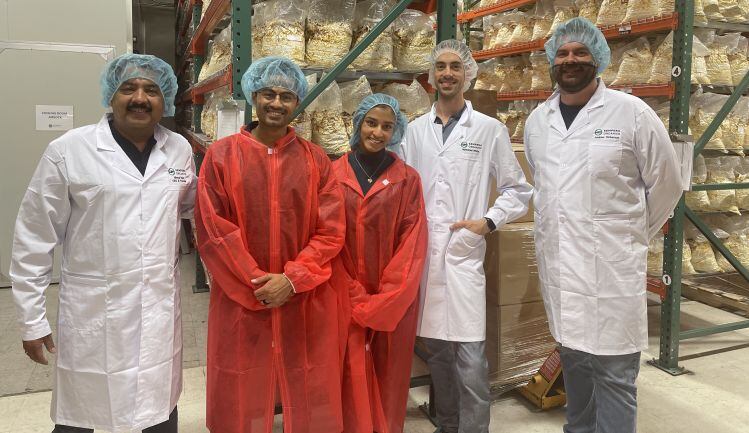
Testing, testing…
In the first instance, he said, anyone buying mushroom powders needs to check if the product on the label is actually what’s inside (a 2017 peer-reviewed study found that 74% of reishi supplements purchased in the US were not in accordance with their labels, with most lacking the characteristic triterpenoids and failing to exhibit a starch-like polysaccharide profile consistent with reishi mushroom).
“There is DNA analysis and FTIR (Fourier-transform infrared spectroscopy) testing that you can do, and we pay a lot of attention to that, and then you look at standardization of polysaccharides, and that’s where 80% of the market is," said Nair.
“Then a fraction of companies are standardizing on beta glucans, which are found in the cell walls of mushrooms and where you find the bioactives. But you need to go to a third-party FDA approved lab. You also want to test for heavy metals as they can suck these up from the soil.”
Dosages, applications, full-spectrum products
When it comes to dosages, although some brands are just sprinkling fairy dust amounts of mushroom powders into their products so they can put ‘adaptogens’ or ‘Cordyceps’ on their label, companies working with Orgenetics are generally looking at higher dosages (say 250mg or 500mg) and want to know that they are getting what they pay for (are you actually buying reishi mushrooms, and do they contain standardized levels of 1,3 1,6 beta glucans?) said Maheshvari at Orgenetics.
“These are very versatile ingredients so we’re working with gummies, tablets, capsules, meal replacements, protein powders, snacks and even beverages as in the hands of the right formulator, they can be water soluble, so people are adding them to teas and coffees and other beverages.”
Bioavailability: ‘The cell walls hold the keys to the castle’
As for bioavailability, the way you process mushrooms is key, said Nair at Sempera, as you need to break open the cell walls to get at the beta glucans.
“The cell walls hold the keys to the castle. Mushroom cell walls are really hard, which is why it’s better for you to actually cook your culinary mushrooms at home so you break down the cell walls.”
For companies providing mushroom ingredients, he said, “You can either break them down through an extraction process and expose the bioactives or break them down through powdering, so micronization* is one extreme and we can offer them in various mesh sizes.”
From a regulatory perspective, he said, “Our mushrooms are all GRAS [generally recognized as safe]. We have not created anything new, we have just figured out a way to cultivate them at very high consistent quality using our solid state fermentation technology.
"A lot of people like the idea of wild sourced mushrooms but the quality is inconsistent, you don't know where it's coming from, so it could from a place high in heavy metals, plus it’s not always sustainable.”
* Sempera offers micronization as an option through its preferred partners, who can offer pulverizing or jet-milling for micronizing to around 200 mesh.
All of Sempera’s mushroom species and strains are DNA tested, while all of its raw materials, work-in-process and finished goods are tested for microbial presence and heavy metals. Every production batch is additionally tested for moisture, water activity, and potency before QC sign-off.


